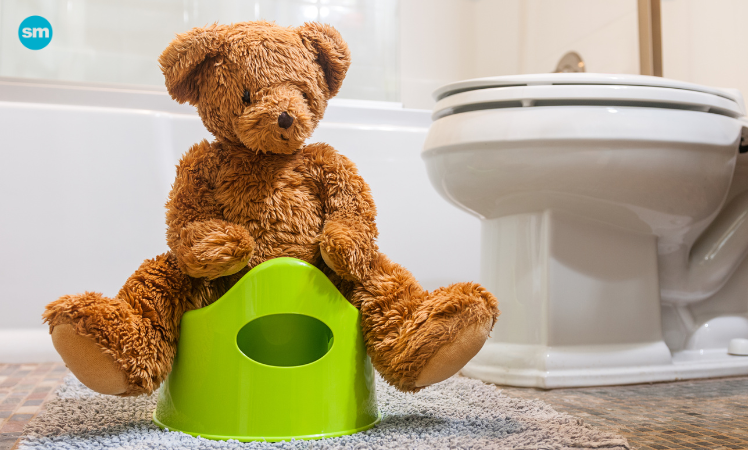How To Deal With Sleep Regression Even After 2 Years?

Last Updated on January 22, 2024 by Lori Pace
The 2 year old sleep regression could be the reason why your 2 year-old’s sleeping habits have changed dramatically. This regression is common in toddlers. They may skip naps, refuse to go to bed, wake up at odd hours, or get up too early.
What Is The Reason For The 2 Year Old Sleep Regression?
It can be exciting to parent through the “terrific 2s“. It’s exciting to watch your toddler discover their world and experience a lot of magical moments. There are also many developmental changes. Here are the top factors that influence sleep at this age.
Independent seeking behavior and limit testing
It is the job of a toddler to explore their world and challenge boundaries. These behaviors are essential to their development. However, they may not be able to just fall asleep and lie down as they did at night. Their busy brains will wonder what happens to them if they eat the bubbles in their bathtub, refuse to go to bed, or run out of their bedroom during storytime.
They might choose to search for autonomy and refuse to change their pajamas or put their diaper on every night.
Changes In Your Sleep Habits Can Cause The 2 Year Old Sleep Regression
Even more difficult is the fact that children of this age can often stay awake for extended periods of time. They need to be awake longer to get enough sleep before they can go to bed. This can lead to long and drawn-out battles before they go to bed.
This means that toddlers can go on successful nap strikes for longer periods of time. This can lead to a child being cranky, falling asleep too late at night (which causes difficulty with bedtime), and waking up very early in the morning.
Too Early To Transition From The Crib
Many families are now transitioning to toddler beds, especially if there is a new sibling. Because children don’t always have the ability to regulate themselves, it can lead to a situation in which the toddler suddenly jumps out of bed.
Milestones Like Potty Training
Temporary problems with sleep can often result from learning new motor skills or developmental milestones. Toilet training is no exception. It’s not uncommon for toddlers to request the potty repeatedly during potty training. This can lead to a late night and tired child.
In the middle of potty training, toddlers may need to go to the bathroom at night or in the morning. These sleep disturbances can cause sleep problems and fatigue, especially if your child is having trouble falling asleep quickly.
Homemaking big changes
It can be difficult for children to adjust to new routines or start nursery school. These changes can have a temporary impact on sleep, particularly if a nap is missed or delayed due to the change of circumstances. If naps are not taken, it can lead to fatigue, which can make falling asleep and staying asleep difficult.
Separation anxiety causes 2 year old sleep regression
You’re not alone if your 2-year-old seems clingy. This is a common symptom in toddlers. It can make it difficult for them to be separated from their caregivers at night. If a child has been struggling to fall asleep, it is possible for them to want their parents there at bedtime. This could lead to a sleep disorder that can disrupt your sleep and cause you to wake up. All night.
Nighttime fears
Children’s imaginations expand as they grow. This can lead to new fears. You may want to be there for your toddler at bedtime if they are feeling afraid. Similar to the above, your toddler may call for comfort when they awake at night.
What is the average length of the sleep regression in the 2 year-old?
What time does 2 year old sleep regression begin?
There is no definitive time when regressions begin. Regressions in sleep at 2 years old can be caused by many factors. They also strike at different times. As they reach 2 years old, some children may experience a significant shift in their sleep habits. Some children won’t notice a change in their sleep habits until they turn two years old.
It is important to note that not all children are affected by developmental regressions. We do see similar patterns in 2 year olds so we encourage you to be ready in case your toddler experiences a shift in their sleep.
When does it end?
It depends on the factors that are contributing to the regression as well as whether there are new sleeping patterns. Some developmental regressions may last for a few days before they resolve themselves. Sometimes, a toddler might get into a sleep pattern that is detrimental to their sleep and not be able to stop it.
7 Sleep Solutions for 2-Year-Old to Avoid Sleep Regression
Make simple choices and define boundaries
Toddlers desire to be heard and have some control over their own lives. Encourage independence in your child by involving them in the decision-making process at bedtime. This can be done by giving them choices, such as “Would your child like to wear the green pajamas or yellow pajamas?” or “We can read both books tonight.” Which of these two would you prefer to choose?
This age group is known for stalling at bedtime. It’s important to establish limits and stay within them. They will be more likely to follow a consistent routine that has a clear end. This helps reduce their use of stall tactics like “We’re going change into our pajamas and read two books before we go to bed.” Parents should not allow children to request “one more book” or “one additional snack”.
Provide an age appropriate schedule when facing 2 year old sleep regression
If your child is already trying to push boundaries, you might have bigger bedtime fights if the time is not right. The awake windows increase at 24 months and most children need between 5.5-6 hours of awake time.
Many children need at least 6 hours of sleep between bedtime and their wake time to get to sleep. If your child wakes up at 3:00, a 9 PM bedtime will help to reduce drama at night.
Children are also more likely to be awake longer than usual, making it easier to skip short-term naps. It is natural for parents to wonder if their child is ready and willing to give up on a nap. This temporary nap refusal can last for a few weeks and 2 year-olds are not always ready to give up on the nap. Children who take their last nap too soon often wake up earlier in the morning or at night and are less able to sleep well. Parents should continue offering the nap until their child is at least three years old.
Be sure to include common requests in your bedtime routine
You should include potty time in your routine if your toddler is toilet-training and bedtime is often delayed by trips to the restroom. Give your toddler “one more” trip to the toilet after you have completed your bedtime routine.
You can also end your routine by giving your child a “one last” hug, or a sip of water. When explaining that something is “last time”, it’s important to be consistent and firm.
Make bedtime earlier if you skip naps
Your 2 year old may skip their nap despite all your efforts. It is possible to make bedtime more convenient to reduce tiredness. This can cause an increase in night waking, and early morning waking.
What about earlier? We don’t want to make bedtime too early or get caught up in a waking cycle. However, many toddlers can sleep 12 to 12.5 hours if they haven’t slept. If your child wakes up at 7:00 am, you might consider a bedtime of 6:30-7:00 pm on the days that they don’t take a nap.
Create a sense of security
You can help your toddler feel more secure if they are showing signs of anxiety or fear at night. Parents often find it helpful to schedule one-on-one time each day with their child, even if it is only 10 – 15 minutes. This will ensure that your toddler is receiving your full attention.
Night lights or leaving the door open can make toddlers feel more secure. Blue lights can reduce melatonin levels so make sure you choose a nightlight that is not blue-light-based. To keep your child safe at night, you might consider adding a special stuffed animal friend.
Heap on positive reinforcement even with 2 year old sleep regression
If your toddler does well at bedtime, or throughout the night, praise them with specific praise. This will encourage your child to do the same thing you want. You might say something like, “I love how quickly you changed into your pajamas!” or “You slept all night without asking mommy.” Both of us got the rest we needed. You are so proud!
For extra encouragement, small prizes can be given to those who achieve these feats. A sticker, or special time or activity with a parent may be awarded to a toddler who remains quiet at night. To help with more difficult sleep issues like early waking, many families find external visual cues such as a sticker chart and/or toddler clock, useful.








